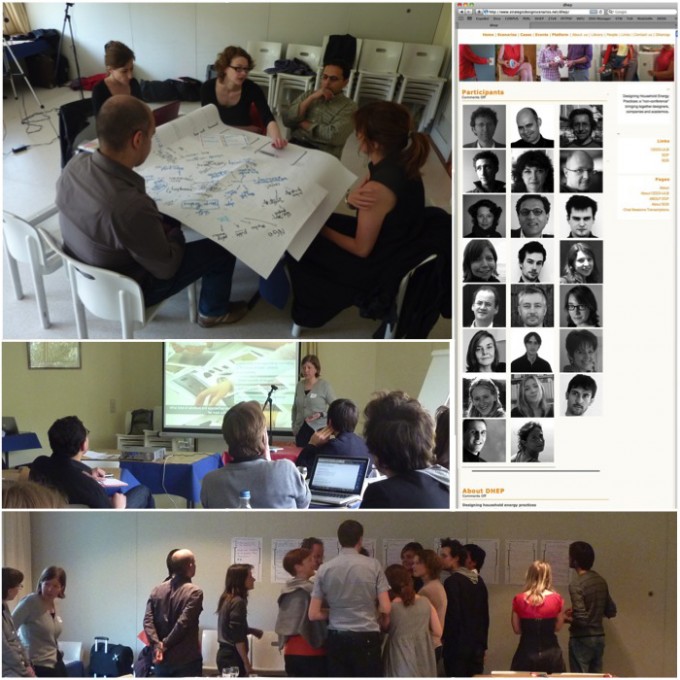About DHEP
Designing household energy practices
A “non-conference” bringing together designers, companies and academics.
…beyond awareness raising and formal education for sustainability, how could the affordance of products support new and more sustainable ways of living? After giving visibility to energy flows, how can design help to rethink the basic interactions with our domestic environment to scripting practices that requires less energy?
Contrary to many scientific conferences providing series of single talks on energy efficiency and behaviours, we aim at organising a hands-on workshop of exchange between actors interested in the question of household energy practices. These two half-days of ‘non-conference’ will gather maximum 30 researchers: around 15 designers or researchers working in companies or as consultants and 15 academics, all involved in the question of energy, design or daily practices.
The meeting will be prepared through internet exchanges: three chats of 2 hours each will be organised in order to create pairs of designers and academics. For example, academics could comment on designers’ propositions, or designers could respond to academics’ challenges. These exchanges will also help to clarify thematics of the workshop. At this point we think of the following issues: giving visibility to the energy does really affect users practices on the long run? How to design interaction with smart meters so that families really feel concerned? Can a light switch induce users to switch off lights more than to switch them on? How the interface between the home electric network and its users could be redesigned? Etc.
The afternoon of day 1 will be devoted to short presentations (10 minutes max, e.g. in a pecha kucha format) by designer/academics pairs if possible. Companies, academics and designers will present either results or concrete novel ideas they believe may shift energy practices in the domestic sector or one still open question or promising project about the design of household energy practices. The aim is that participants challenge each other with key issues and innovative ideas.
In the evening, we will gather in a convivial place, where to continue discussions.
The morning of day 2 will be more organised as a barcamp around questions that will be specified through the process, but could be structured as: what could be new research paths? Participants would work by teams around questions that will have emerged. We intend that participants will go back home both with tentative design guidelines and food for further thoughts…
The objectives of this non-conference are thus manifold:
– develop new ideas of design
– experiment other ways of interacting between researchers
– initiate new collaborations
The event will take place in Brussels at the end of April.
The results will be posted on the website in May.
Organising partners:
– Centre for Studies on Sustainable Development (CEDD-ULB), Université Libre de Bruxelles
– Strategic Design Scenarios (SDS), Brussels
– Electricité de France (EDF), Paris
